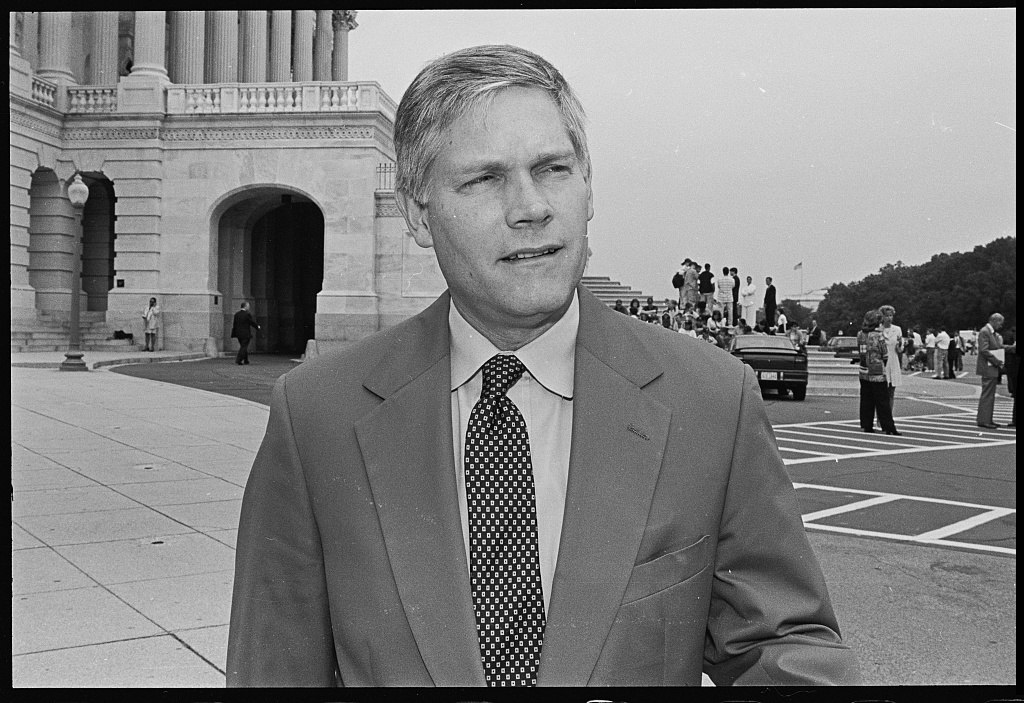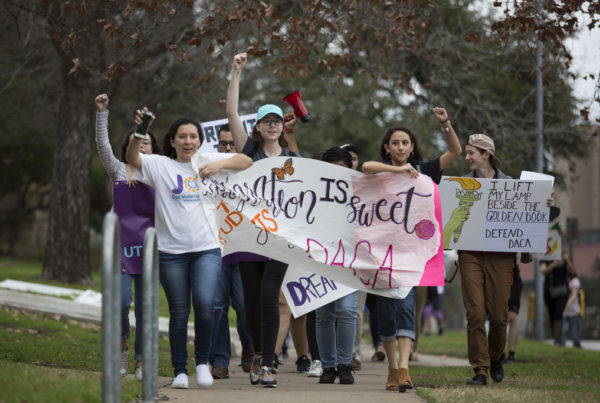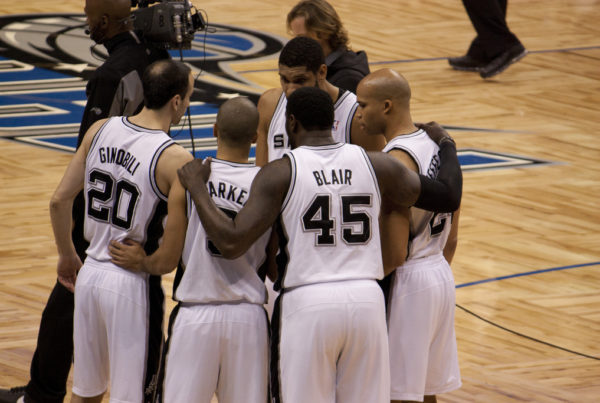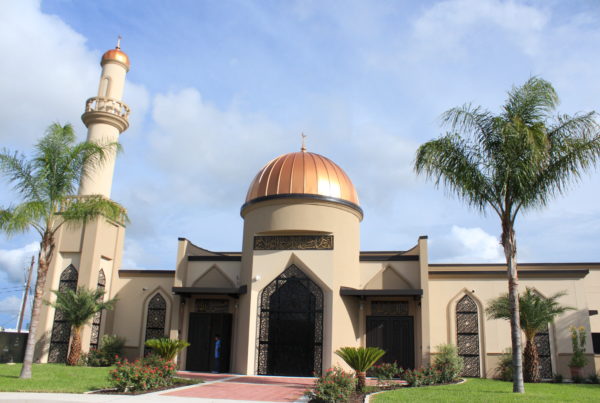In Texas’ 32nd Congressional District, Republican Pete Sessions Faces His Toughest Race in Years
Sessions has backing from Vice President Mike Pence, but his Democratic opponent Colin Allred says changing demographics in north Texas could help swing the race in his favor.

Wikimedia Commons (Public Domain)
Rep. Pete Sessions in front of the U.S. Capitol in 1998.
From KERA:
There’s at least one sign that Republicans elsewhere are paying attention to the race for Texas’ 32nd Congressional District: Vice President Mike Pence visited Dallas last week.
Here’s Pence in a speech during the visit: “Texas and America needs Pete Sessions back in a renewed Republican majority on capitol Hill.”
In a hotel ballroom packed with supporters, after Pence spoke, Sessions laid out the stakes in this year’s election.
“This is a cultural war that we’re engaged in and we’ve watched it loud and straight forward at your TV in Dallas and the rest of the country. We need to make America great again, and we need to make sure that Republicans hold the majority,” Sessions said.
Pete Sessions has represented the 32nd Congressional District since 2003. It covers most of North Dallas and some of its northeastern suburbs. Through the years, he’s earned a reputation as a scrappy campaigner, a prodigious party fundraiser and a wily political tactician.
But this year, the 32nd is one of the most competitive districts in Texas. As chairman of the House Rules Committee, Sessions says he’ll continue to use his influential position to bolster the Dallas economy.
“I am the business-community member of Congress. I have a near-perfect ranking with the chamber of commerce. I have received their top award every single year I’ve been in Congress,” Sessions said.
But Sessions’ opponent says all that time in Washington has left the congressman out of touch with his district. Democrat Colin Allred says his campaign has knocked on 125,000 doors, and voters are ready for a change
“The north Texas I know, the north Texans I’m talking to, want somebody that’s focused on our local issues here who will be an advocate for us locally here with what we have going on – who will put something over party, who will put something over political career and political advancement,” Allred says.
Allred grew up in the district and he was a high school football star who played in the NFL. He worked in the Obama administration as a civil rights lawyer before coming back to Dallas. His campaign, he says, is focused on bread-and-butter issues like health care, education, job training and raising the minimum wage.
“People want a better life for their kids than they had, and they want to feel like the government is on their side, and it’s not going to see them differently based on anything – whether it’s their gender, where they come from, what they look like, who they love. They want to have a fair shot, and I think that’s what we expect in this country,” Allred says.
Allred is banking on the fact that this district is changing; it’s becoming more diverse and a lot of new people are moving in, making this once solidly Republican district a battleground. Both candidates are raising big money – more than $4 million each –and millions more are coming in from the left and right, from outside PACs and super PACs. All of that has unleashed a flood of TV ads.
Here’s a clip from one of Sessions’ ads: “They’re after me this time. I’m Pete Sessions. The liberals are jamming your TV with negative ads. They want revenge!”
All this cash flowing into the race is unusual, says political scientist Victoria Farrar-Myers of Southern Methodist University. Typically, money flows out from Texas to fund tight races across the country
“Because Texas has been such a strong, Republican, red state, the national parties didn’t have to worry about this state. Now, there’s some cause to worry,” Farrar-Myers says.
And the worry isn’t just limited to the 32nd District; there’s also the competitive race for Senate between Ted Cruz and Beto O’Rourke, and a handful of other suddenly competitive congressional districts. Those races are also attracting outside attention and dollars. Farrar-Myers says Democrats want to put Texas in play long term.
“You know we’re seeing a dynamic changing here in politics, not only in the campaigns, in the way campaigns are run, but also the dynamic here in Texas because people tend to think – especially in this race, with the changing demographics in this district – the Democrats see this as a good time to really make a good challenge and a good run,” Farrar-Myers says.
Regardless of who wins on Nov. 6, Farrar-Myers says the Democratic Party will try to build on the energy and infrastructure created this year. And Republicans will do everything they can to keep the state bright red.















